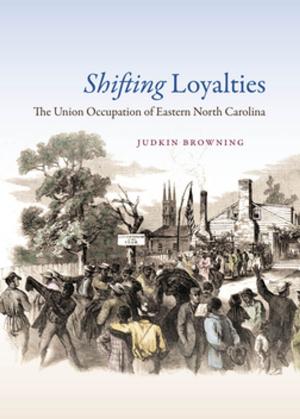| Author: | Henry R. Winkler | ISBN: | 9780807866344 |
| Publisher: | The University of North Carolina Press | Publication: | November 9, 2000 |
| Imprint: | The University of North Carolina Press | Language: | English |
| Author: | Henry R. Winkler |
| ISBN: | 9780807866344 |
| Publisher: | The University of North Carolina Press |
| Publication: | November 9, 2000 |
| Imprint: | The University of North Carolina Press |
| Language: | English |
Distinguished historian Henry Winkler examines the changing and often contradictory views that characterized the British Labour party's approach to foreign policy from the end of World War I through the 1920s. He documents the progression from Labour's general indifference toward international issues before World War I, to its almost total rejection of the prevailing international order after the war, to its eventual grudging acceptance of the need to work for international cooperation through existing institutions. In the early 1920s, the Labour party began to abandon its earlier positions of pacifism and class struggle in favor of a more pragmatic approach to foreign affairs as party leaders recognized the possibility that they might one day come to power. Central to the shift in policy were such leaders as J. R. Clynes, Norman Angell, Arthur Henderson, Hugh Dalton, Philip Noel-Baker, and Will Arnold-Forster, who rejected traditional policies and who supported the League of Nations and, more tentatively, collective security. According to Winkler, these positions might have offered a viable alternative to the ruling Conservative party agenda had they not been undermined by the disintegration of the entire European order in the 1930s.
Originally published 1994.
A UNC Press Enduring Edition -- UNC Press Enduring Editions use the latest in digital technology to make available again books from our distinguished backlist that were previously out of print. These editions are published unaltered from the original, and are presented in affordable paperback formats, bringing readers both historical and cultural value.
Distinguished historian Henry Winkler examines the changing and often contradictory views that characterized the British Labour party's approach to foreign policy from the end of World War I through the 1920s. He documents the progression from Labour's general indifference toward international issues before World War I, to its almost total rejection of the prevailing international order after the war, to its eventual grudging acceptance of the need to work for international cooperation through existing institutions. In the early 1920s, the Labour party began to abandon its earlier positions of pacifism and class struggle in favor of a more pragmatic approach to foreign affairs as party leaders recognized the possibility that they might one day come to power. Central to the shift in policy were such leaders as J. R. Clynes, Norman Angell, Arthur Henderson, Hugh Dalton, Philip Noel-Baker, and Will Arnold-Forster, who rejected traditional policies and who supported the League of Nations and, more tentatively, collective security. According to Winkler, these positions might have offered a viable alternative to the ruling Conservative party agenda had they not been undermined by the disintegration of the entire European order in the 1930s.
Originally published 1994.
A UNC Press Enduring Edition -- UNC Press Enduring Editions use the latest in digital technology to make available again books from our distinguished backlist that were previously out of print. These editions are published unaltered from the original, and are presented in affordable paperback formats, bringing readers both historical and cultural value.















